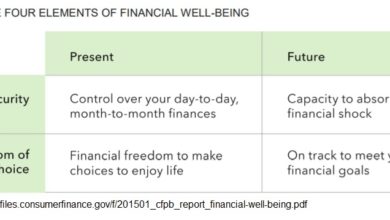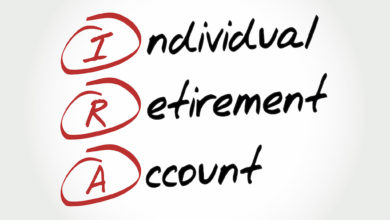How to Minimize Your Tax Liability in Retirement and Spend on What Matters

Finally! Retirement time is almost here. It is a time to relax and enjoy the fruits of your labor, but… wait. Taxes. Yes, you know that they can take a significant bite out of your hard-earned savings. But wouldn’t it be great to learn how to minimize your tax liability in retirement and spend more on what truly matters?
By employing smart strategies, staying informed on tax breaks, and getting a bit of retirement coaching, you can keep more of your money in your pocket. In this blog post, we’ll explore various tactics that can help you optimize your retirement finances and reduce your tax burden.
From maximizing retirement account contributions to choosing a tax-friendly state for retirement, this comprehensive guide will provide you with valuable insights and tips on how to minimize your tax dues and make the most of your golden years.
Let’s dive in and discover how you can minimize taxes in retirement and maximize your enjoyment of life’s pleasures.
Quick Summary
- Maximize retirement account contributions and utilize HSAs and FSAs to reduce taxable income.
- Optimize business deductions for side hustles, take advantage of education tax credits and 529 plans, strategically donate to charities, and use donor-advised funds.
- Leverage capital loss harvesting/basis adjustments, choose a wise retirement state & develop a smart withdrawal strategy for accounts. Stay informed on state/local tax breaks.
Maximize Retirement Account Contributions

One of the most effective ways to minimize your taxes in retirement is to maximize your contributions to retirement accounts like IRAs and 401(k)s.
By contributing the maximum allowable amount to these accounts each year, you can lower your taxable income and enjoy tax-free growth until retirement. Additionally, consider choosing between Traditional and Roth IRAs, depending on your current and future tax bracket.
Traditional IRAs involve pre-tax contributions, reducing your taxable income for the current tax year. Roth IRAs, on the other hand, are taxed upfront but offer tax-free withdrawals during retirement, providing an appealing option for those who expect to be in a higher tax bracket later in life. When it comes to 401(k) plans, it is suggested to contribute either the full allowable amount annually or at least the maximum amount matched by your employer.
Remember to make your contributions by the end of the calendar year to ensure your funds accumulate and contribute to your future retirement income.
While maximizing your retirement account contributions is a powerful strategy, it’s essential to consider the five-year rule for converting traditional accounts to Roth accounts.
This rule could impact your finances when it comes to accessing your funds tax-free should you roll over your individual retirement account too close to the time of actually retiring.
Such an action could potentially mean hefty taxes on those funds. Consult a tax professional to help you make informed decisions and how to budget for retirement.
Utilize Health Savings Accounts (HSAs) and Flexible Spending Accounts (FSAs)

But there are other effective ways to reduce your taxable income and minimize taxes in retirement, such as utilizing Health Savings Accounts (HSAs) and Flexible Spending Accounts (FSAs) for medical expenses.
HSAs allow you to save pre-tax dollars for qualified medical expenses, reducing your taxable income. Contributing to an HSA provides an instant tax deduction, increases tax-deferred, and can be withdrawn tax-free for appropriate medical expenses.
At the end of the year, any unused balance can roll over without any restrictions, such as those applicable to assets in a retirement account. There are no limits placed on how much you may carry over.
By using an HSA to pay for qualified medical expenses, you can withdraw funds tax-free, ensuring that these withdrawals don’t impact your taxable income.
FSAs work similarly to HSAs but have a use-it-or-lose-it policy, meaning that any unused funds in an FSA are forfeited at the end of the year. It’s essential to plan your contributions to these accounts carefully and consult with a tax professional to maximize their benefits.
HSAs and FSAs are excellent tools for managing your medical expenses while reducing your taxable income.
By contributing to these accounts and using them strategically, you can minimize taxes in retirement and focus on enjoying your golden years. Try using a savings goal calculator to help you get to the retirement goals you have today.
Optimize Business Deductions for Side Hustles

What if you’re self-employed or have a side hustle? We know that optimizing your business deductions can be a game-changer in minimizing taxes during retirement.
By claiming various deductions, such as business-related vehicle mileage, shipping, advertising, website fees, and professional publications, you can save on income taxes and increase your retirement savings.
One popular deduction for self-employed individuals is the home office deduction. If you use a portion of your residence exclusively for business activities, you may be eligible for this valuable deduction.
Self-employed individuals can also deduct various expenses related to running their businesses, such as office supplies, business-related travel, and a percentage of home internet charges used for business.
In addition to claiming these deductions, self-employed individuals can also benefit from owner distributions instead of receiving a salary from their business. Distributions are not subject to payroll taxes, which can result in significant tax savings.
Consult with a tax professional to ensure you’re taking advantage of all the deductions available to you and optimizing your tax situation.
Take Advantage of Education Tax Credits and 529 Plans
Education tax credits and 529 Plans can be powerful tools for minimizing taxes in retirement. Tax credits like the American Opportunity Tax Credit and Lifetime Learning Credit can help offset educational expenses, providing valuable tax savings.
By utilizing these credits, you can invest in your continued education and personal growth, all while reducing your tax responsibility.
Another valuable tool for education savings and retirement is the 529 Plan. These college savings plans offer tax-exempt growth and withdrawals for qualified educational expenses, providing a tax-efficient way to save for college or other educational pursuits.
In addition to their educational benefits, 529 Plans can also be used to transfer funds to other beneficiaries or pay off student loans, offering flexibility in how you use these accounts.
By taking advantage of education tax credits and strategically contributing to 529 Plans, you can minimize taxes in retirement while investing in your future and the future of your loved ones.
Strategically Donate to Charities and Utilize Donor-Advised Funds
Strategic charitable donations can also help you minimize taxes in retirement. Utilizing donor-advised funds, you can bundle several years’ worth of donations into a single year, allowing you to itemize deductions and maximize tax savings.
Contributions to donor-advised funds are tax-deductible in the year they are made, even if the donations are allocated to charities over several years.
In addition to using donor-advised funds, consider donating appreciated stocks to charities to avoid capital gains tax.
By donating stocks directly to qualified charities, you can eliminate the capital gains tax on the appreciation of the stocks, further reducing your tax dues.
Remember that to claim tax deductions for charitable donations, you generally need to itemize your deductions. Consult with a tax professional, such as The Institute of Financial Wellness, to help you strategically plan your charitable donations and maximize the tax benefits of your generosity.
Invest in Tax-Free Bonds and Long-Term Investments
Investing in tax-free bonds, such as Treasury and municipal bonds, can be a smart way to minimize taxes in retirement. These bonds are not subject to certain types of taxation, allowing you to enjoy tax-free income from your investments.
However, it’s essential to weigh the benefits of tax-free bonds against their typically lower interest rates compared to taxable bonds.
Did you know that focusing on long-term investments can also help reduce your tax responsibility? Long-term investments generally benefit from lower tax rates on investment income, allowing you to keep more of your earnings and minimize taxes.
By carefully selecting your investments and considering the tax implications of your choices, you can optimize your retirement portfolio for tax efficiency and long-term growth.
Leverage Capital Loss Harvesting and Basis Adjustments
Capital loss harvesting is another strategy that can help you minimize taxes in retirement. By selling investments at a loss, you can offset capital gains taxes and reduce your overall tax dues.
Additionally, you can adjust the basis for capital gains tax on your investments by including all reinvested dividends and making any necessary home renovations or improvements to minimize the capital gains tax owed upon the sale of a residence.
For example, single taxpayers can exempt up to $250,000 of their residence’s appreciation from capital gains tax, making it essential to plan your home sales and improvements strategically. By employing capital loss harvesting and basis adjustments, you can effectively manage your investment gains and losses to minimize your tax in retirement.
Choose Your Retirement State Wisely
The state in which you choose to retire can significantly impact your tax during retirement. Retiring in a tax-friendly state with low or no income tax can help reduce your tax burden and allow you to keep more of your hard-earned money. Some states, like Florida, Virginia, Colorado, Wyoming, and Alaska, are known for their low taxation, low cost of living, agreeable climate, and healthcare facilities.
Before you decide on a retirement destination, research the tax laws and implications of living in various states.
Factors to consider include income taxes and tax rates, property taxes, and sales taxes, as well as any state-specific tax breaks or incentives for retirees. By choosing your retirement state wisely, you can minimize taxes and enjoy a more comfortable and financially secure retirement.
Develop a Smart Withdrawal Strategy for Retirement Accounts

Creating a well-planned withdrawal strategy for your retirement accounts is crucial for controlling your tax rates in retirement. By tapping taxable accounts first and strategically withdrawing from tax-deferred and Roth accounts, you can manage your tax responsibility and optimize your retirement income.
Different types of retirement account withdrawals are taxed at different rates, making it essential to understand the tax implications of each source of income. For example, Roth IRA or Roth 401(k) qualified distributions are not subject to taxation, while traditional IRA and 401(k) withdrawals are taxed as ordinary income.
Do you need help and advice? Consult a financial advisor to help you develop a smart withdrawal strategy that takes into account your unique tax situation and retirement goals.
Stay Informed on State and Local Tax Breaks
Lastly, staying informed on state and local taxes, as well as federal taxes, can further reduce your tax responsibility during retirement. For instance, optional pass-through entity taxes for small business owners are available in over 30 states, providing tax relief and minimizing the tax burden on these individuals who pay taxes. Being aware of your tax bill can help you plan better for your financial future.
To stay updated on state and local tax breaks, visit your state’s Department of Revenue website or consult with a tax professional. By staying informed and taking advantage of available tax breaks, you can maximize your tax savings and enjoy a more financially secure retirement.
Full Summary
In conclusion, minimizing taxes in retirement is a multifaceted endeavor that requires careful planning and strategic decision-making.
By maximizing retirement account contributions, utilizing HSAs and FSAs, optimizing business deductions, taking advantage of education tax credits and 529 Plans, strategically donating to charities, investing in tax-free bonds and long-term investments, leveraging capital loss harvesting and basis adjustments, choosing a tax-friendly retirement state, developing a smart withdrawal strategy, and staying informed on state and local tax breaks, you can significantly reduce your tax dues during retirement.
Remember, the key to a successful and financially secure retirement lies in planning ahead and staying informed. Take control of your financial future by implementing these strategies and working with professionals to optimize your tax situation.
Your golden years await, and with the right approach, you can minimize taxes and focus on what truly matters: enjoying your well-deserved retirement.
At the Institute of Financial Wellness, our mission is to empower people to live their best life by achieving their financial goals.
We understand that managing finances can be overwhelming, which is why we offer a wide range of resources, services, and educational materials to help you plan for retirement, manage your finances, and achieve financial success.
Our FREE Custom Retirement Roadmap is a valuable tool that can help you gain insights into how to increase the probability of your retirement success, lower or eliminate taxes in retirement, and mitigate the effects of market volatility. Don’t let financial stress hold you back from living your best life – request your roadmap today and take the first step towards financial freedom.
Frequently Asked Questions
Is it better to claim 1 or 0 on your taxes?
Claiming 1 on your taxes is generally the better option since it gives you more money each paycheck. It may mean a smaller tax return, but it can be worth it for the additional money in the short term.
How to reduce tax liability in 2023?
Maximize your contributions to retirement funds, such as 401(k) or Traditional IRA. Utilize employee stock purchasing programs and business deductions, invest in qualified opportunity funds, donate stocks through donor-advised funds, sell poor-performing stocks, and deduct student loan interest to reduce your taxable income for 2023.
How can an LLC reduce tax liability?
An LLC can reduce its tax dues by changing its tax classification, claiming business deductions, using self-directed retirement accounts, deducting health insurance premiums, and offsetting losses against taxable income.
How can high-income earners reduce taxes?
High-income earners can reduce taxes by contributing to qualified retirement savings plans such as 401(K), 403(b), and 457, fully funding tax-advantaged accounts, considering a Roth Conversion, adding money to a 529 account, donating more to charity, reviewing and adjusting their asset allocation, considering alternative investments, and maximizing other deductions.
These strategies can help high-income earners reduce their tax burden and maximize their savings. It is important to understand the tax implications of each strategy and to consult with a qualified tax professional to ensure that the strategies are implemented correctly.
Do you pay taxes on retirement after 65?
Yes, individuals and couples generally must pay taxes in retirement after 65. This includes federal taxes on pension income and withdrawals from tax-deferred investments such as traditional IRAs, 401(k)s, and 403(b)s.
Unmarried retirees receiving more than $14,700 in nonexempt income in addition to their Social Security benefits are typically required to file a federal income tax return.
Erik C. Sussman, CLU®, ChFC®, CFP®, and CEO of The Institute of Financial Wellness founded the company to provide financial education, resources, and services that help people live their best lives.
For Financial Professionals:
The Institute of Financial Wellness provides proven sales and marketing systems, state-of-the-art technology, training, and support to financial professionals nationwide. The IFW helps financial professionals grow their practices to the next level! IFW Certified Financial Professionals are an elite group of professionals that, together with the IFW, help people succeed financially and live their best lives.
For Consumers:
The Institute of Financial Wellness is the most comprehensive multi-media network for financial education, resources, and services. In fulfilling our mission to help people “Get There” and live their best life, we deliver the following five unique value propositions:
Our philosophy is that when it comes to financial decisions, Never say Never. Never say Always. It Depends!






